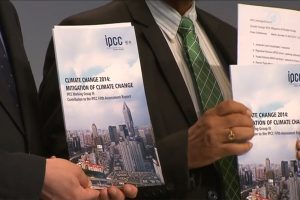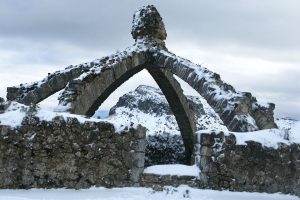Search
In early February, the Intergovernmental Panel on Climate Change (IPCC) organised a meeting in Oslo with the goal of improving the effectiveness and impact of their communication actions. During 9 and 10 February, this organism gathered around fifty experts from the communication, politics, business and
Documentary text on how chromosomal inversions in natural populations of the species Drosophila subobscura are good indicators of climate change and can help us to study how organisms adapt to it.
Climate-KIC Mary Ritter is Professor Emerita of Immunology at Imperial College London. She is the former Chief Executive Officer of the Climate-KIC European initiative (Knowledge, Innovation, Community), who has recently opened a site in Valencia, within the Botanical Garden of the University of Valencia. Which kind of parallelism
Against a contrasting backdrop of consensus on key issues on climate science, a heterogeneous group dubbed climate «skeptics», «contrarians», «deniers» have significantly shaped contemporary discussions of climate science, politics and policy in the public sphere. This essay focuses on the USA context, and explores some of the intertwined social, political and economic factors, as well as cultural and psychological characteristics that have together influenced public attitudes.
This article examines the television coverage of the three 2013 and 2014 reports by the Working Groups of the IPCC in five European countries: Germany, Norway, Poland, Spain and the United Kingdom.
The need for green fiscal reform is urgent in the face of climate change. Some oppose it, however, arguing that such reforms disproportionately burden poorer individuals whose emissions are far smaller than those of wealthier individuals.
Everything seems to point to the fact that the education system is not yet succeeding in conveying the characteristic features of climate change to society.
Eight out of ten Spaniards think the hole in the ozone layer, caused by human actions, is the key physical cause of climate change. This belief, constructed from scientific elements (concepts, images, icons, discourse), is a product of popular culture. Science has never confirmed this relationship.
The scientific community has reached an ample consensus about the existence of climate change and its causes; one of the most extensive in the history of science.
One of the most fascinating archaeological evidence of ancient use of Mediterranean mountains are snow pits, also called snow storehouses or snowdrifts. Snow pits have become a clear evidence of much colder times.










